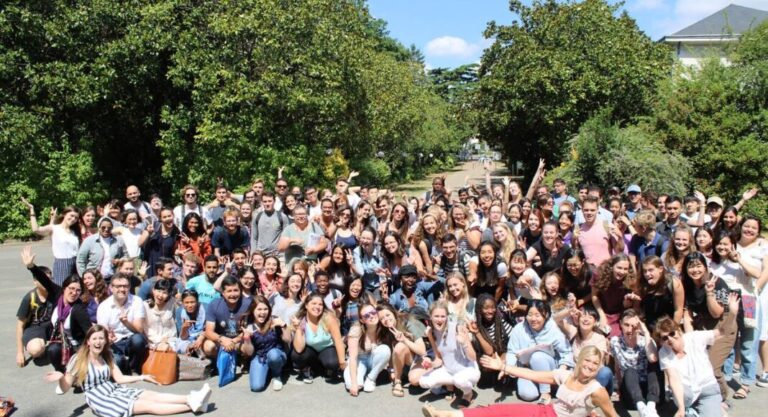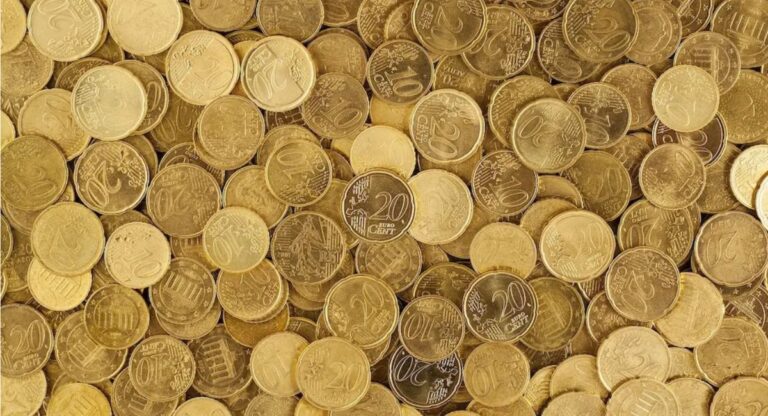1. Fat
In the US: “Fat” is very well understood. It means overweight or heavy: “My neighbor’s dog is so fat it needs help getting on the couch.”
In France: “Fat” is what you call a really full sandwich. A double-deckler BLT? “C’est fat.” A bagel and lox with tomato slices, red onion, and capers? “C’est fat.” “Fat” can also mean something is great, like “Cette soirée était fat” (this party was great).
2. Un sweat
In the US: “Sweat” is a noun or verb, either perspiration or the act of perspiring.
In France: “Un sweat” means a sweatshirt. “Il a y un trou dans mon sweat préféré.” (There’s a hole in my favorite sweatshirt.)
3. Un lifting
In the US: If someone were talking about “lifting” in the US, you would assume they’d been to the gym recently to pump some iron and build up muscle.
In France: Quite the opposite, in France “un lifting” is a facelift. “Ma mère a fait un lifting. C’est vraiment bizarre…” (My mom got a facelift. It’s super weird…)
4. Des baskets
In the US: “Baskets” are what you toss your dirty socks in from across the room or what you dunk balls into on a court.
In France: A true faux-ami, “baskets” in France are sneakers. Think: basketball shoes. Your friend’s is donning the latest Nike creation? “J’adore tes baskets, elles sont super stylées.” (I love your sneakers, they’re super cool.)
5. Un camping
In the US: “Camping” in American English is a form a verb meaning to stay outside in a tent (to camp) and also a noun meaning the act of staying outside in a tent.
In France: “Un camping” in French is a campsite. For example, if you want to know where to go camping in France, you might look at “une carte des campings en France” (a map of campsites in France).
6. Un parking
In the US: “Parking” is a verb meaning to find a space to leave a car.
In France: France gets it kind of right… but not. “Un parking” is a parking garage. “Je cherche une place dans le parking.” (I’m looking for a parking spot in the parking garage.)
7. Le Catch
In the US: “The catch” would be a snag or drawback. “A catch” could also be someone grabbing a ball out of the air.
In France: “Le Catch” is professional wrestling. Like WWE, fake wrestler names, pre-wrestle trash-talking, and maybe some costumes.
8. Un string
In the US: A “string” could be a string of events (like a chain of events) or it could simply be a physical string, like a small, thin rope.
In France: Not at all the same thing, “un string” is a thong.
9. Un before
In the US: A “before” could be understood by an American as a before picture (like before and after pictures) or just as a preposition.
In France: France uses “un before” to mean a pre-game, or a get-together before a party.
10. Un flipper
In the US: We’d use the word “flipper” to talk about the fin on a dolphin, the plastic things you put on your feet to swim faster, or the little trigger in a game of pinball.
In France: France is kind of on the right track with this one. “Un flipper” means pinball (the game) in French. “Je connais un bar sympa avec des vieux flippers” (I know a cool bar with old pinball machines).
11. Un crack
In the US: “A crack” in the US is a line in a surface that’s breaking, a loud sound, or the drug (“crack”).
In France: “Un crack” is a casual way to say an expert. “Paul Krugman est un crack dans son domaine.” (Paul Krugman is an expert in his domain.)
Featured image: Stock Photos from GlebSStock/Shutterstock






